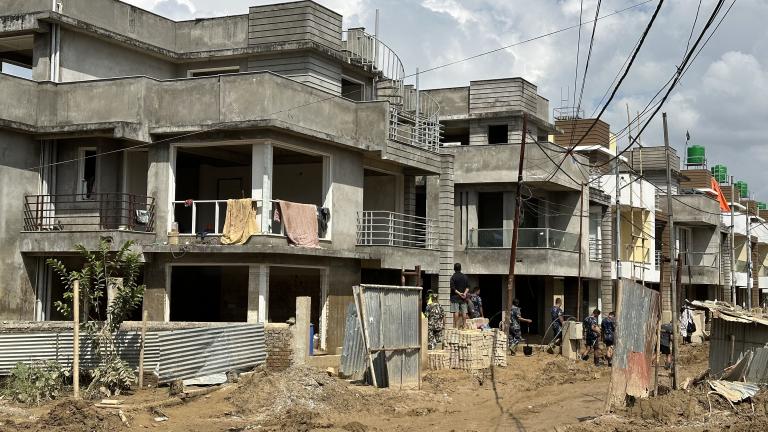Water at the Heart of Climate Action (WHCA) aims to accelerate and scale up hydrometeorological monitoring and forecasting
Drought, floods and other natural hazards are striking the Nile Basin countries with increasing frequency and intensity. Yet, the region's hydrometeorological monitoring and forecasting systems to anticipate and act on such risks are fragmented. Though well-intentioned, isolated efforts have lacked the integration and coordination needed to protect communities across borders. That is about to change thanks to the Water at the Heart of Climate Action (WHCA) project being funded by the Ministry of Foreign Affairs, Kingdom of Netherlands. The project, launched in August 2023, aims to accelerate and scale up hydrometeorological monitoring and forecasting to mitigate the impacts of water-related risks and increase the climate resilience of affected communities. A recent WMO regional workshop in Addis Ababa, Ethiopia, in April achieved an important breakthrough towards achieving that goal.
Experts from meteorological, hydrological and disaster management agencies from Ethiopia, Rwanda, South Sudan, Sudan and Uganda came together to map out the hydrometeorological database and platforms currently used to visualize and communicate disaster risk. The findings were astonishing: 20 plus different platforms are in use. This highlighted a serious lack of coherence in monitoring and sharing of information. The participants were not satisfied with identifying the problem - they committed to change.
The consensus was clear: a consolidated regional approach was needed. The solution? A regional visualization platform for supporting early warning systems in the Nile Basin to be hosted by ICPAC (IGAD Climate Prediction and Applications Centre). The regional platform would connect the fragmented systems and provide a single, integrated view of climate hazards. The solution would thus leverage existing systems and platforms and enhance interoperability.
This will be a fundamental shift in the coordination of early, or anticipatory, action in the Nile Basin. National Meteorological and Hydrological Services (NMHSs) had been issuing advisories in silos, based on national or regional - ICPAC and Nile Basin Initiative (NBI) - data and information. Now, all countries would access a shared regional monitoring and forecasting system, based on a collective pool of data and scientific expertise. This regional view becomes the "point of truth", from which national agencies can then downscale forecasts and issue localized advisories tailored to their populations at risk.
The implications are profound. If a flood risk is detected in Uganda with potential downstream impacts in South Sudan, the shared platform ensures that both countries see the same picture in real time. This is not just about better forecasting, it's about building trust, collaboration and a culture of anticipatory action across borders. Natural hazards do not respect national boundaries, hence the shift toward a regional, science-based early warning system is a bold and necessary step forward.

WHCA recognizes that though climate action is local, it must be informed by regional solidarity and shared knowledge. The WHCA project demonstrates what that can look like in practice. WMO is implementing WHCA in coordination with the Netherlands Red Cross (NLRC), International Federation of the Red Cross (IFRC), Red Cross Red Crescent Climate Centre (RCCC), Systematic Observations Financing Facility (SOFF), and United Nations Office for Disaster Risk Reduction (UNDRR). The project, which will run to July 2028, is being delivered in collaboration with various government agencies, local authorities, non-governmental organizations and communities of the five Nile Basin countries.






